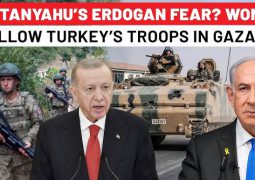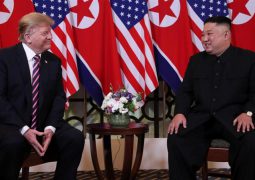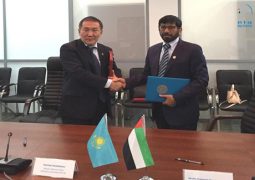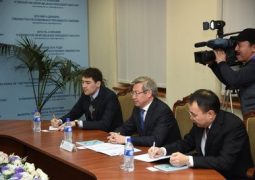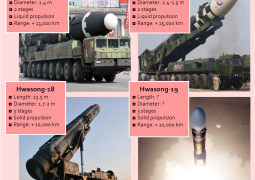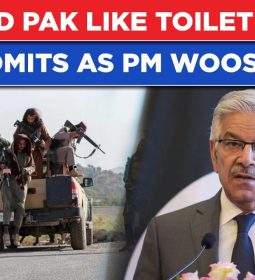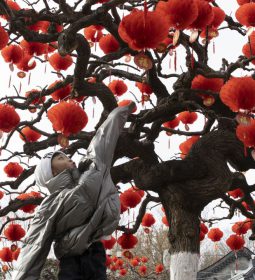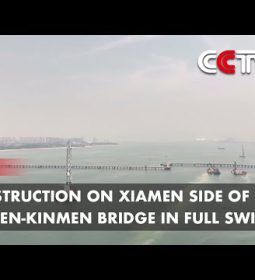Saudi King Leads Hundreds of Princes, Clerics, Military Officials on Asia Trip
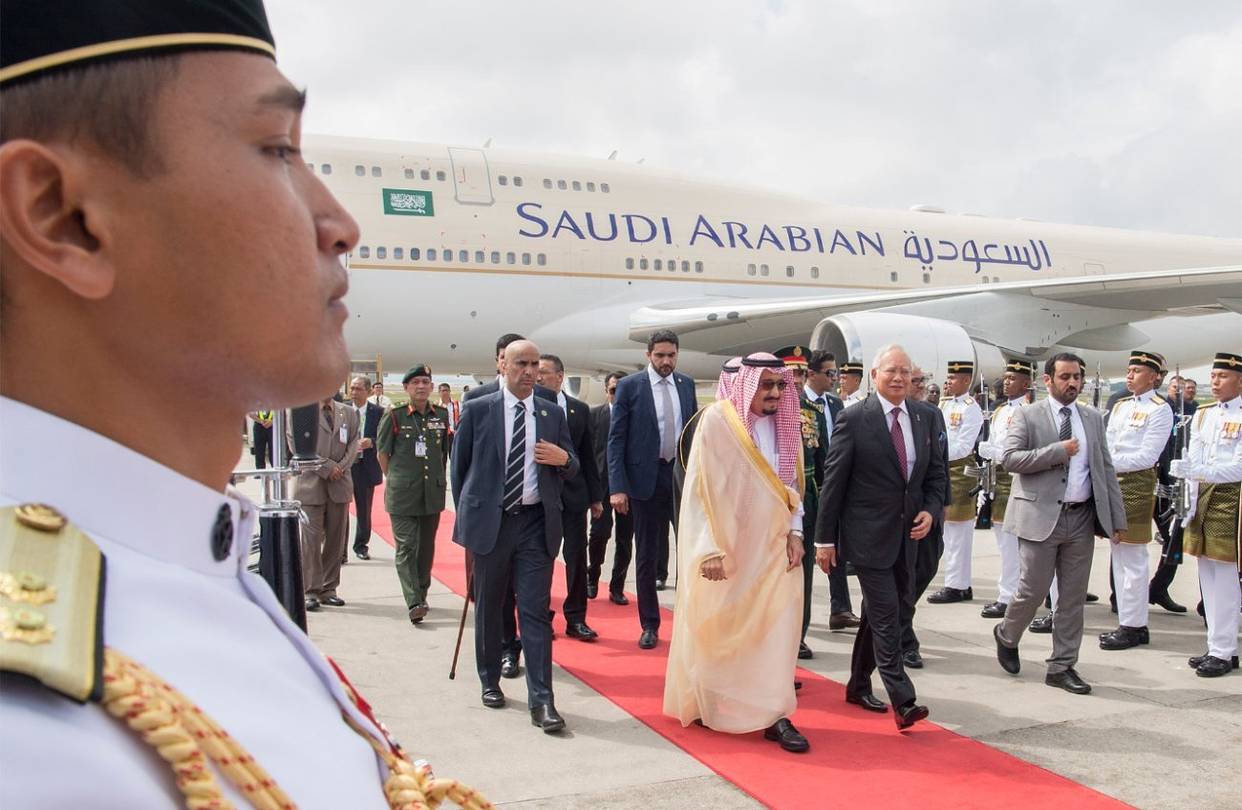
The Saudi king is leading an up to 1,500-person entourage through Asia for a monthlong tour in a bid to strengthen ties with a region the kingdom sees as an increasingly valuable economic partner and a hedge against an unpredictable U.S. government.
The monarch, accompanied by senior princes, religious leaders, ministers and military officials, began his trip in Malaysia, where on Monday he agreed to invest $7 billion in a Malaysian petrochemical project and signed other joint ventures.

From Malaysia, King Salman’s group will travel to Indonesia, Brunei, Japan, China and the Maldives. The logistical feat to transport, lodge and feed them involves 459 tons of cargo, including two electric escalators to help the entourage on and off airplanes, two Mercedes Benz S600s and vast amounts of halal food, said a Saudi official.
King Salman’s Asia tour comes at a delicate time for bilateral relations with Washington, Riyadh’s most important strategic partner. The decades-old alliance was strained under President Barack Obama over foreign policy, especially after the former president’s outreach to Iran, Saudi Arabia’s rival.
While the U.S. remains a vital ally, the souring of ties pushed the kingdom to accelerate efforts to become more self-sufficient, broadening and deepening its alliances beyond the West.
Saudi Arabia enthusiastically welcomed the election of U.S. President Donald Trump, who has vowed to take a hard-line against Iran. But Mr. Trump’s regional policy is still far from clear, and a key bone of contention in U.S.-Saudi ties—a bill that would allow families of the 9/11 victims to sue Saudi Arabia—remains unresolved.
In a telling sign, King Salman’s tour of Asia is happening before an expected visit to Washington to meet Mr. Trump.
“Saudi Arabia’s foreign policy is becoming more active and confident,” said Abdullah al-Shammary, a Saudi analyst and former career diplomat. “Despite the good mood with the Trump administration, Saudi Arabia is sending a message to Washington that ‘Yes, you are our friend. But we also have alternatives.’”
The stops in Indonesia and Malaysia reflect the kingdom’s desire to deepen ties with the Muslim-majority countries. Officials will discuss business opportunities in sectors like tourism and pilgrimages from those countries to the holy Islamic sites in the cities of Mecca and Medina. Saudi Arabia said it issues as many as 3,200 visas a day just for Malaysians to travel to Saudi Arabia for the year-round Umrah pilgrimage.
In Indonesia, the Saudis will visit the Istiqlal Mosque, the biggest one in Southeast Asia, and later pause for a holiday at Bali.
Meanwhile, China and Japan are together with the U.S. the biggest buyers of Saudi oil—each spending more than $20 billion on oil products in 2015.
But as the kingdom pushes to diversify its economy beyond oil following the slump in crude prices that began 2014, Saudi Arabia is hoping to attract foreign investment. From China and Japan it hopes to draw interest in sectors including logistics, transportation, construction and financial services, said a person familiar with the agenda.
A Japanese government official said Saudi Arabia’s aim of reducing its dependency on oil will be discussed when King Salman meets with Prime Minister Shinzo Abe on his March 12-15 visit.
During King Salman’s tour of Asia, Saudi Arabia’s stock exchange executives, representatives of government investment agencies and some of the country’s top-tier companies are meeting with investors in Singapore and Hong Kong to drum up interest in the kingdom’s equity market.
The tour happens as the Saudi stock market increasingly opens itself up to foreign investors and ahead of the world’s biggest planned initial public offering, that of Saudi Arabian Oil Co., expected to raise more than $100 billion as early as 2018.
“We understand that being closer to institutional investors will bring the liquidity and inflow of cash to the Saudi market,” said Khalid al-Hussan, chief executive of the Tadawul, Saudi Arabia’s bourse, whose combined market value exceeds $400 billion.
Saudi Arabia’s relationship with Malaysia came under the spotlight last year in relationship with an investigation into billions of dollars of missing funds from the Malaysian development fund 1Malaysia Development Bhd.
An investigation by Malaysia’s attorney general said that $700 million that was transferred to Prime Minister Najib Razak in 2013 was a donation from the Saudi royal family. The attorney general said Mr. Najib returned most of it and cleared him of wrongdoing. International investigations into the fund are still being conducted.
—Anita Rachman in Jakarta, Indonesia, and Alastair Gale in Tokyo contributed to this article.
- Previous Malaysian officials run into N. Korean’s diplomatic immunity
- Next Malaysia, Saudi Arabia firms sign over RM9.74b worth of deals



